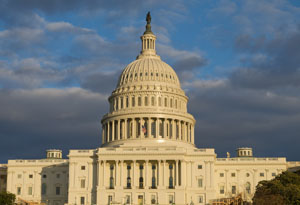
Then-presidential candidate Mitt Romney made headlines when he asserted that 47 percent of Americans were "victims" dependent upon government assistance. I'm guessing he wasn't thinking of people who receive employer-based health insurance as being the beneficiary of government largess. But, the government loses a lot of money in the benefit.
Here's how: First, people who receive employer-based health insurance do not pay taxes on its cost. Second, employers deduct the cost of the policies as a business expense.
As the fiscal cliff approaches, some policy wonks are saying the U.S. can't afford that tax break any more.
As Julie Appleby reports for Kaiser Health News, it's the largest cost to the U.S. Treasury, "an estimated $246 billion annually, according to Congress’ Joint Committee on Taxation, dwarfing the second-largest break, the mortgage interest deduction, which costs an estimated $98 billion."
That is a lot of money.